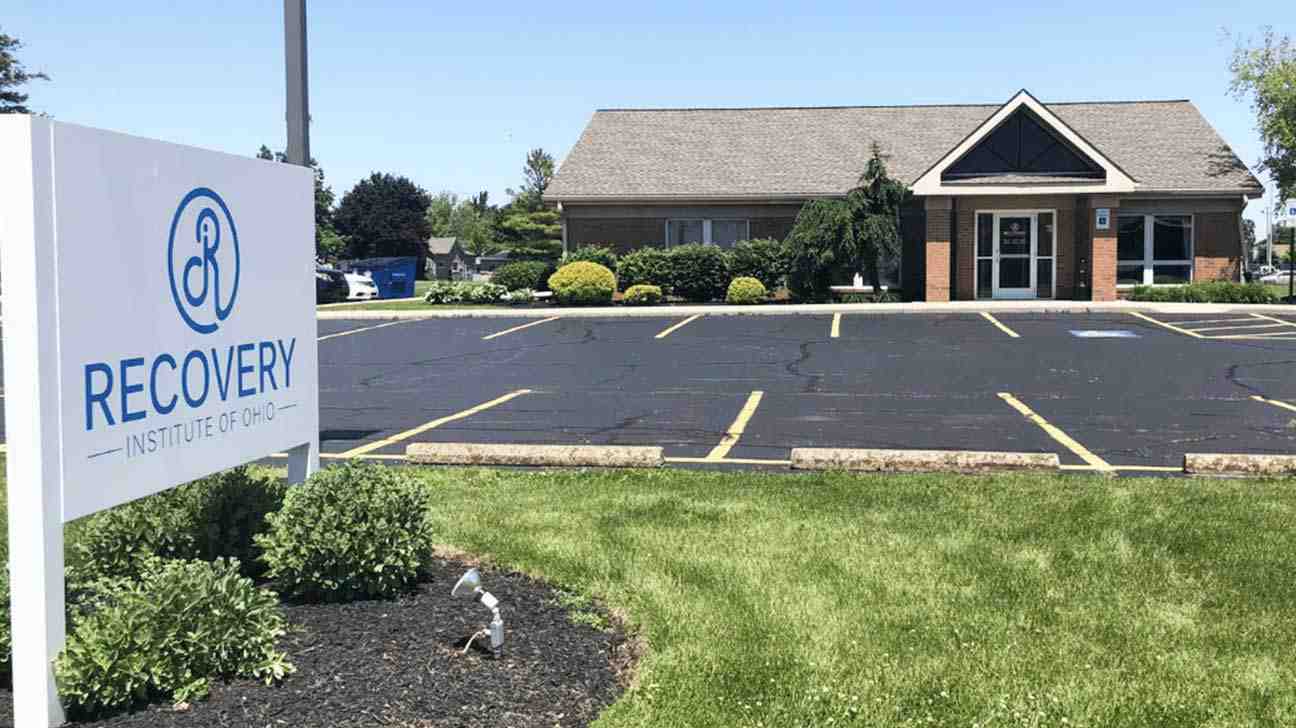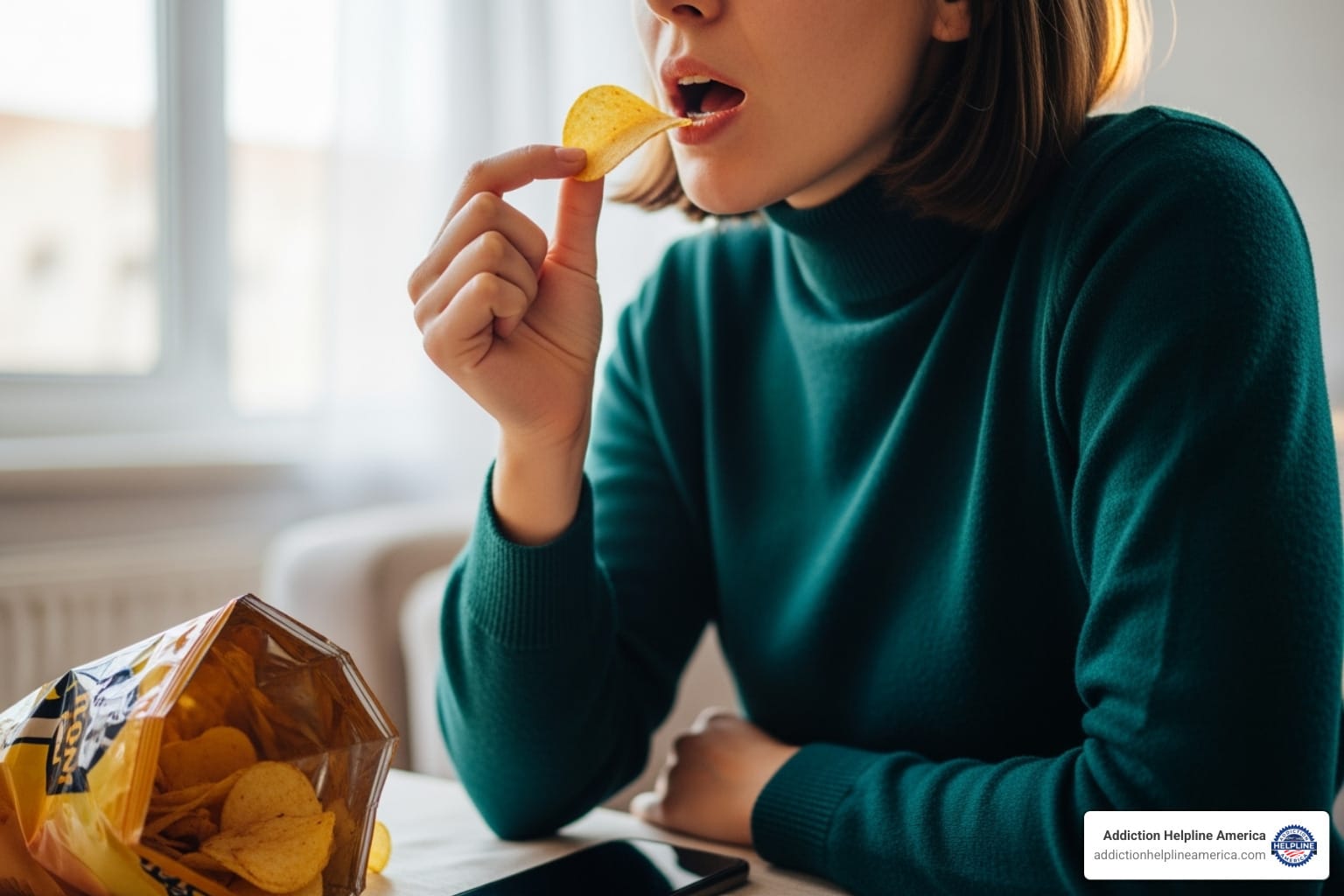
Understanding the MSG Controversy: What Science Says About Food Cravings
Does MSG make you addicted to food? Based on current scientific evidence, MSG does not cause addiction in the clinical sense. It doesn’t meet the medical criteria for addiction in humans because it doesn’t cause compulsive seeking, loss of control, or withdrawal symptoms.
Quick Facts:
- MSG is not addictive by the medical definition used for substances like drugs or alcohol.
- MSG improves flavor, which can make foods more appealing and increase how much you eat.
- The FDA considers MSG “generally recognized as safe” (GRAS).
- Less than 1% of people report sensitivity to MSG, with mild, short-lived symptoms.
- MSG works by activating umami taste receptors, not by creating dependency.
- Highly processed foods containing MSG often have other ingredients that contribute to overconsumption.
The confusion around MSG stems from mixing up deliciousness with dependency. MSG improves the savory “umami” flavor in foods, making them more palatable. We naturally want to eat more of what tastes good, but this is different from addiction, which involves compulsive behavior and negative consequences.
While some animal studies show a preference for MSG-enriched foods, these findings don’t directly translate to human addiction. The human body tightly regulates glutamate levels in the brain, and most dietary glutamate doesn’t cross the blood-brain barrier.
At Addiction Helpline America, we help people steer the complex landscape of addiction and compulsive behaviors. If you have questions about whether does MSG make you addicted to food or if your eating patterns signal deeper concerns, our specialists can provide clarity and support.
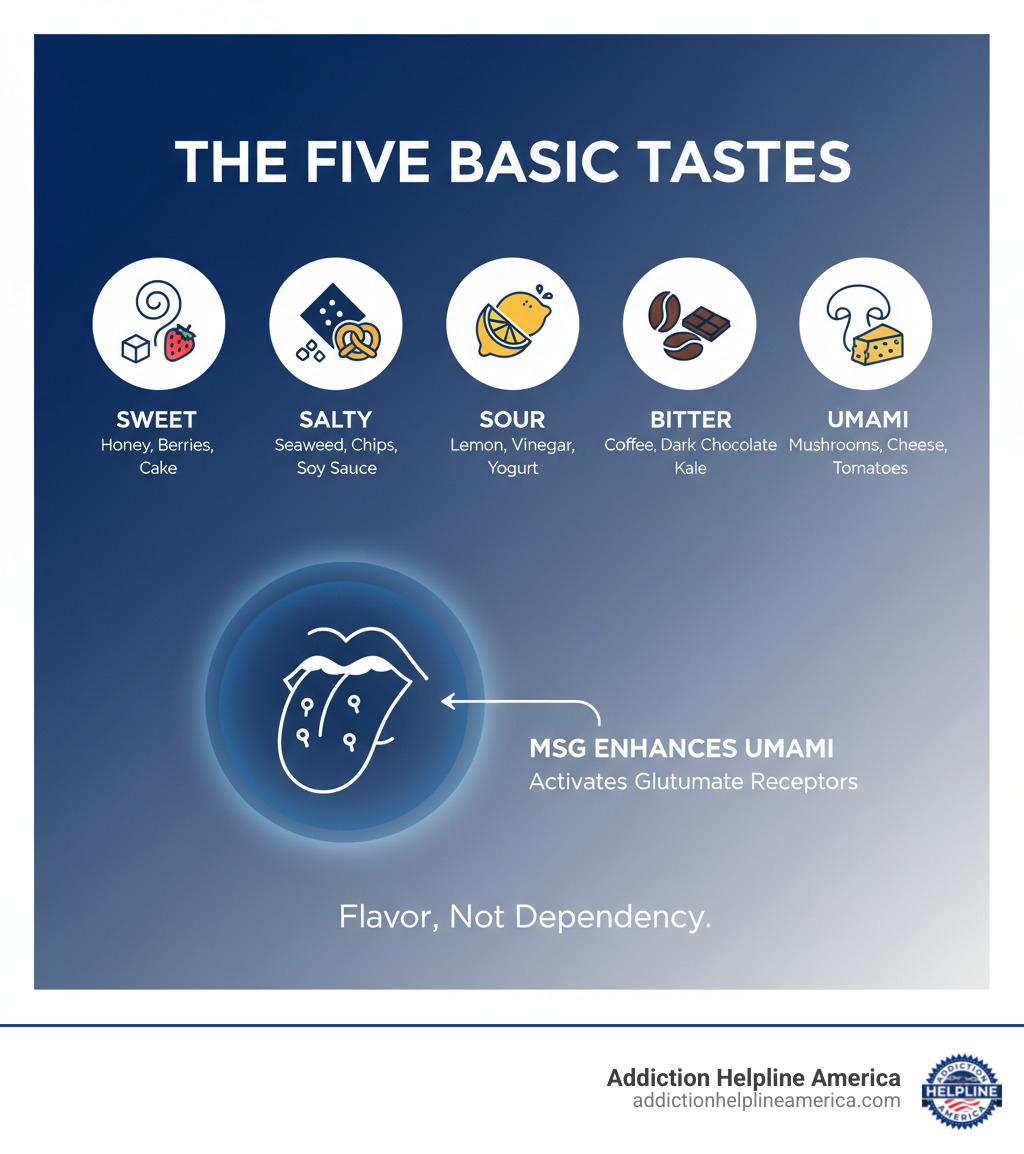
What is MSG and Where Is It Found?
Monosodium glutamate, or MSG, is a flavor improver that has been used for over a century to give foods a savory, satisfying taste. While often associated with Asian cuisine, it’s found in a wide range of products, from chips and canned soups to fast food and frozen dinners. This widespread use is a key reason people ask, does MSG make you addicted to food?
MSG is the sodium salt of glutamic acid, a common amino acid. In its “free” form, glutamic acid provides the savory taste known as umami—the rich, mouth-watering quality found in foods like aged Parmesan cheese and mushroom broth. MSG is simply a concentrated form of this flavor.
It’s found in many packaged and processed foods, including canned goods, deli meats, chips, instant noodles, and condiments. The U.S. Food and Drug Administration (FDA) classifies MSG as “generally recognized as safe” (GRAS), placing it in the same safety category as salt and vinegar.
How is MSG Used in Food?
The primary purpose of MSG is flavor improvement. It adds a savory, meaty quality that makes dishes more enjoyable and complete. Food manufacturers and restaurants use it to create consistently delicious products. It can also help reduce sodium content in recipes, as it contains about one-third the sodium of table salt while still providing a robust flavor.
Natural vs. Added Glutamate
The glutamate in MSG is chemically indistinguishable from the glutamate that occurs naturally in foods. Your body metabolizes both in the exact same way. Many whole foods are rich in natural glutamate, including tomatoes, Parmesan cheese, mushrooms, seaweed, and fermented products like soy sauce.
This natural glutamate is what gives these foods their deep, complex flavors. The body uses most dietary glutamate for energy in the digestive tract, with very little entering the bloodstream or affecting the brain directly. Whether from a tomato or a seasoning packet, your body treats glutamate the same.
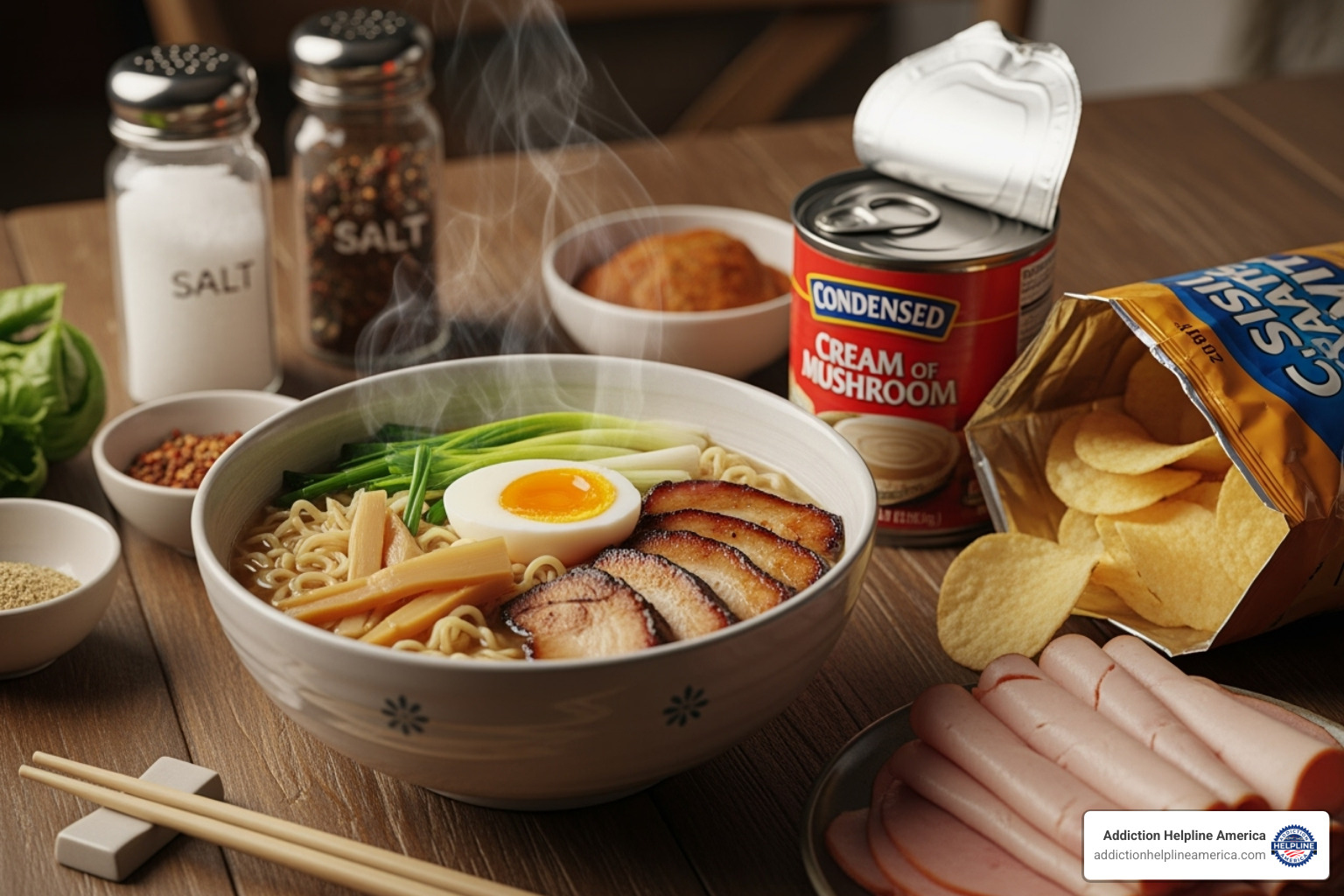
The Science of Addiction vs. Intense Cravings
When you can’t stop eating a bag of chips, it’s easy to feel like you’re addicted. But is it true addiction, or just an intense craving for something delicious? Understanding this difference is key to answering whether does MSG make you addicted to food.
Addiction is a complex brain disorder, not just a strong desire. It involves compulsive behavior, a loss of control, and continuing use despite negative consequences. True addiction changes the brain’s reward system, where the neurotransmitter dopamine plays a key role. For a deeper dive, see our Addiction Information page.
What is the Scientific Definition of Addiction?
Medically, addiction is a chronic, relapsing brain disease. It’s characterized by:
- An overwhelming urge to use a substance.
- Loss of control over consumption.
- Continued use despite serious harm (to health, relationships, or work).
- Developing tolerance (needing more for the same effect).
- Experiencing withdrawal symptoms when trying to stop.
These criteria apply to substances like opioids, alcohol, and nicotine, which create profound physical and psychological dependence.
Flavor-Enhancing vs. Addictive Properties
MSG’s role is to improve flavor. It activates umami taste receptors on your tongue, signaling to your brain that the food is delicious. This increased palatability makes you want to eat more. It’s a response to a satisfying sensory experience—the combination of savory flavor, salt, and fat—not a physiological dependency.
The key difference is the mechanism. Flavor improvement works through taste perception. Addiction involves neurochemical changes that create compulsive seeking and withdrawal. MSG does not cause these effects. You don’t compulsively seek MSG, lose control over your life because of it, or suffer withdrawal if you stop eating it. The desire to eat more is a response to taste, not a sign of addiction to the ingredient itself.
So, Does MSG Make You Addicted to Food? The Scientific Debate
While it’s a popular idea, the scientific consensus is that MSG does not cause addiction. The feeling of being unable to stop eating savory snacks is understandable, but it’s driven by deliciousness, not chemical dependency.
How MSG Affects the Brain
Glutamate is a vital neurotransmitter, but the glutamate you eat in MSG doesn’t significantly affect your brain. The blood-brain barrier is a protective filter that prevents most dietary glutamate from entering the brain. Your brain produces its own glutamate and tightly regulates its levels, regardless of what you eat.
Some animal studies, like one showing mice preferred MSG-enriched water, suggest it can encourage consumption. However, these results don’t translate directly to humans, as the doses are often extremely high and animal physiology differs from ours.
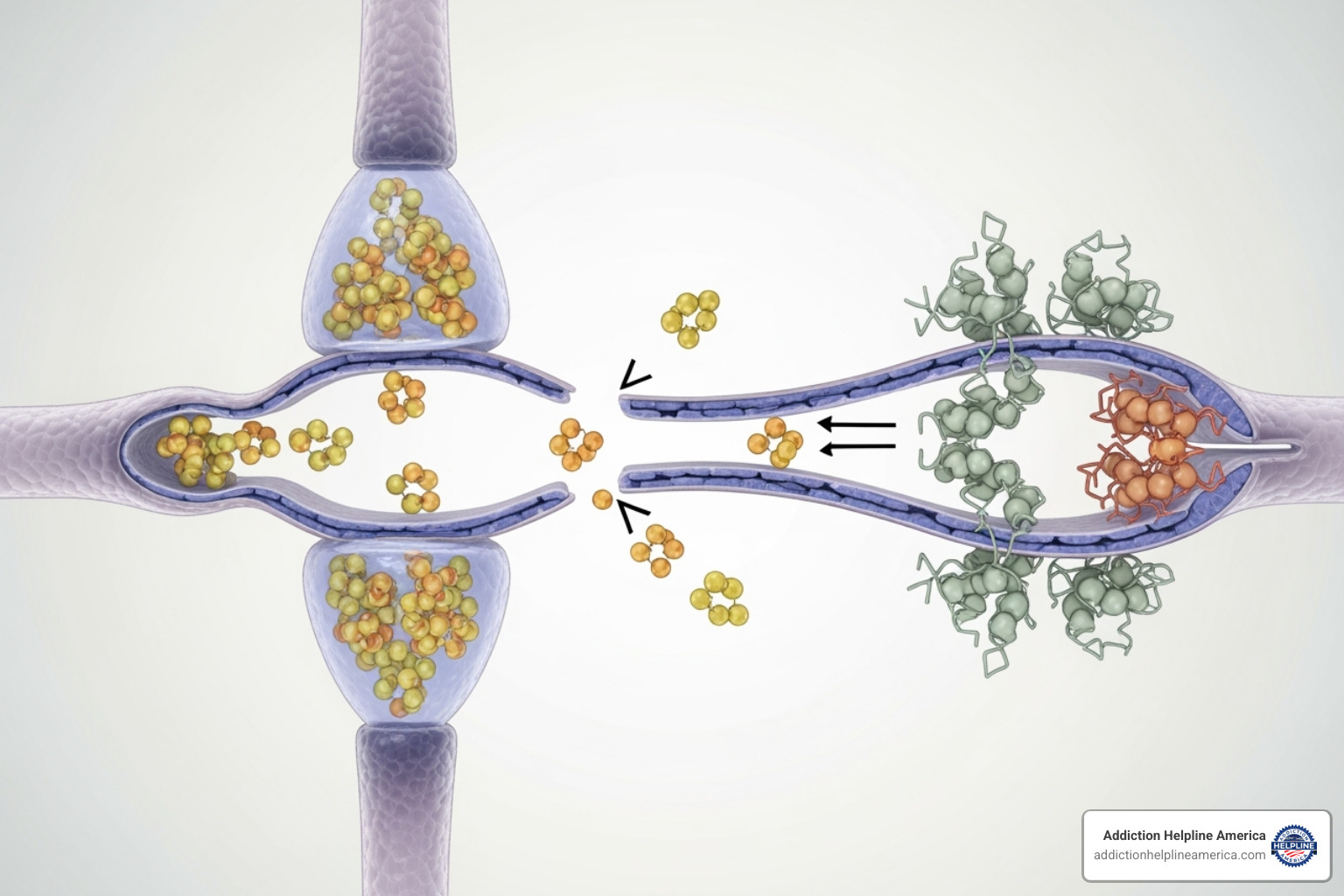
Does MSG Meet Addiction Criteria in Humans?
When measured against the clinical definition of addiction, MSG falls short:
- No Compulsive Seeking: People seek out tasty foods, not MSG itself. No one compulsively consumes the pure chemical.
- No Loss of Control: Over-consuming MSG actually makes food taste unpleasant, creating a natural limit. This is the opposite of the loss of control seen in addiction.
- No Withdrawal Symptoms: There are no physical or psychological withdrawal effects from stopping MSG consumption.
The “addictive-like” eating behavior is a response to the hyper-palatability of foods engineered with MSG, fat, salt, and sugar to be highly appealing.
What Do Regulatory Bodies Say?
Major global scientific and regulatory bodies have consistently found no evidence of MSG’s addictive potential in humans.
- The U.S. Food and Drug Administration (FDA) classifies MSG as “Generally Recognized As Safe” (GRAS).
- The Joint FAO/WHO Expert Committee on Food Additives (JECFA) gives MSG its safest rating, with an Acceptable Daily Intake of “not specified.”
These organizations agree that MSG is a safe flavor improver. The average daily intake of 0.3-1.0 grams is well within safe levels. The consensus is clear: MSG makes food taste better, which makes us want more, but it is not an addictive substance.
Potential Health Risks and Sensitivities of MSG
While the evidence shows does MSG make you addicted to food is a myth, some people report health concerns. It’s important to separate anecdotal reports from scientific findings.
Are There Specific Populations More Sensitive to MSG?
Some people report symptoms like headaches, flushing, and nausea after consuming MSG, a phenomenon once called “Chinese Restaurant Syndrome” and now known as “MSG Symptom Complex.” However, double-blind scientific studies have struggled to consistently reproduce these symptoms.
A small percentage of the population, likely less than 1%, may have a genuine sensitivity. For these individuals, large amounts of MSG might trigger mild, temporary symptoms. These are sensitivities, not life-threatening allergies, but if you notice a pattern, it’s wise to consult a healthcare provider.
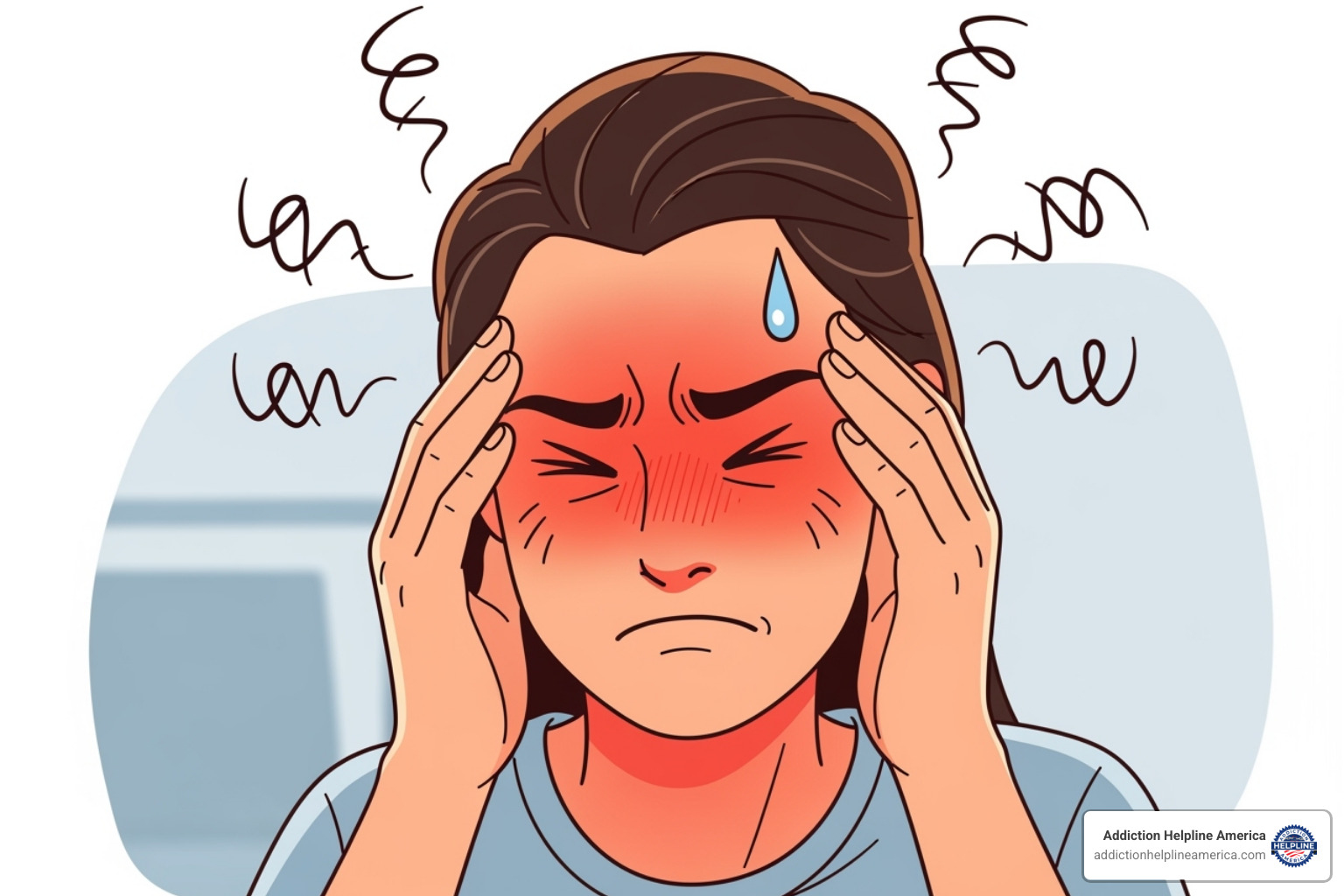
Other Health Concerns Beyond Addiction
Animal studies have explored links between very high doses of MSG and issues like obesity, metabolic disorders, and liver problems. However, it’s crucial to note that these studies use doses far exceeding what any human would consume. Human studies have not found conclusive evidence of significant harm at typical consumption levels (around 0.3 to 1.0 grams per day).
This research does underscore the importance of a balanced diet. Many processed foods containing MSG are also high in fat, sugar, and sodium—a combination that poses health risks regardless of MSG content.
If your relationship with food feels out of control, it may be about more than just one ingredient. While Addiction Helpline America focuses on substance use disorders, we understand that compulsive food behaviors are distressing. We can provide guidance and connect you with appropriate resources, such as our Free Drug and Alcohol Helplines for related support.
Frequently Asked Questions about MSG and Addiction
Let’s clear up common questions about MSG, food cravings, and addiction.
What are the common misconceptions about MSG and addiction?
The biggest misconception is that MSG is chemically addictive like a drug. This idea stems from the intense pleasure of eating savory foods, but it confuses deliciousness with dependency. The intense desire to eat more of a food with MSG is a response to its high palatability (often combined with fat, salt, and sugar), not a sign that does MSG make you addicted to food in a clinical sense. Another myth is that MSG is inherently dangerous, a belief fueled by the outdated “Chinese Restaurant Syndrome” controversy, which has been largely debunked by science.
Can you experience withdrawal from stopping MSG?
No. There are no withdrawal symptoms associated with stopping MSG consumption. Unlike addictive substances like caffeine or alcohol, your body does not develop a physical dependency on MSG. You can stop eating it without any negative physical or psychological effects, which is a key reason it is not considered addictive.
How can I identify MSG on food labels?
The FDA requires added MSG to be listed in the ingredients as “monosodium glutamate.” However, other ingredients like hydrolyzed vegetable protein, autolyzed yeast, and yeast extract naturally contain glutamate, which provides the same umami flavor. A product can claim “no added MSG” and still contain these ingredients. If you are sensitive to glutamate, you may want to watch for these as well. That many whole foods like tomatoes and Parmesan cheese are also naturally high in glutamate.
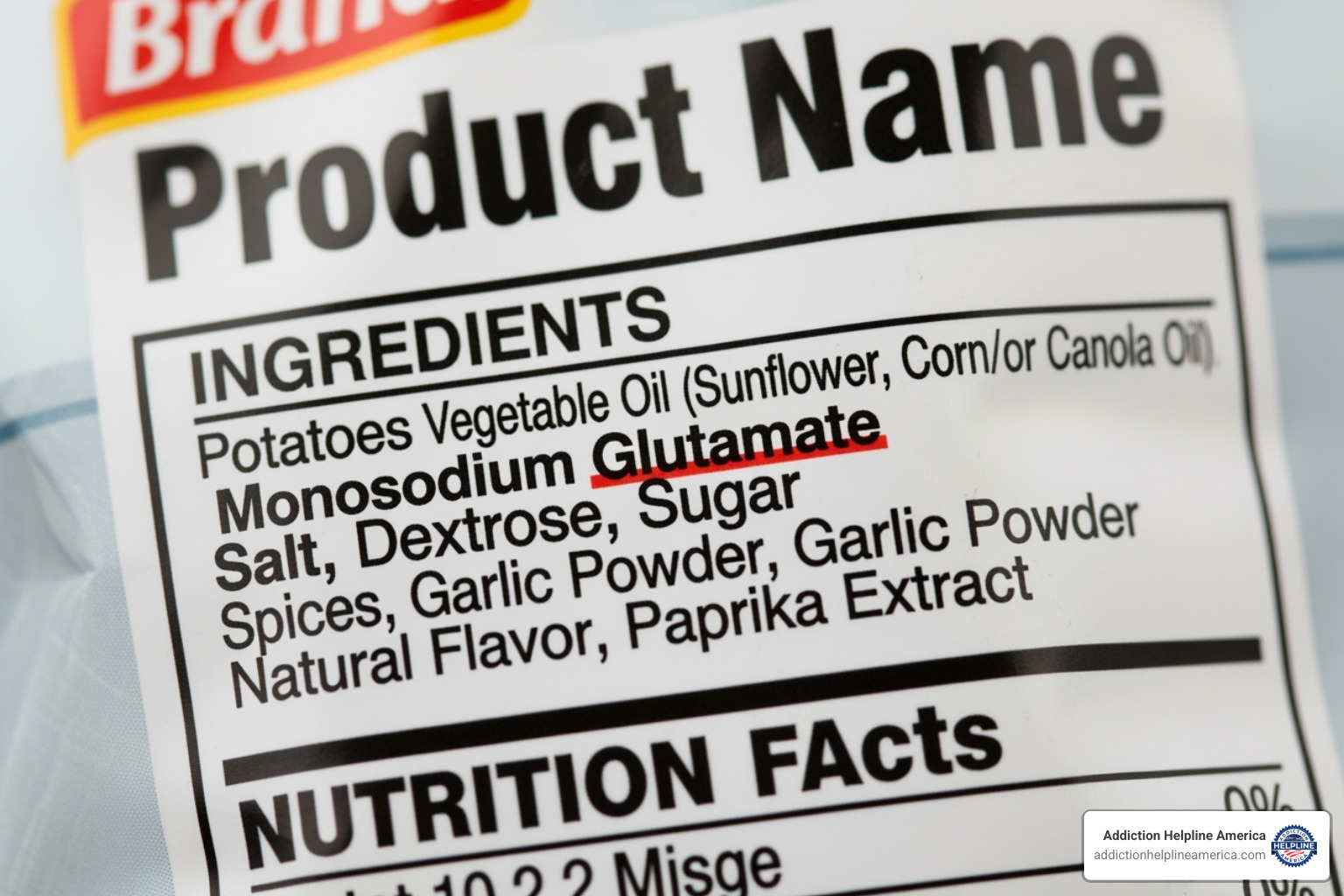
Conclusion: Managing Your Food Habits
So, does MSG make you addicted to food? The scientific answer is no. MSG is a flavor improver that makes food taste more delicious, which can lead you to eat more. However, this response to good flavor is not the same as a clinical addiction. You won’t experience withdrawal or compulsive seeking for MSG itself.
The real story is about how highly palatable foods—often combining MSG with salt, fat, and sugar—are designed to be irresistible. This is a matter of food science, not chemical dependency. Global regulators like the FDA agree that MSG is safe for most people.
Practicing mindful eating is key. Pay attention to your body’s hunger cues and consider the reasons behind your eating habits. Is it boredom, stress, or something else? Understanding these patterns is more important than focusing on a single ingredient.
However, if your eating feels uncontrollable and is causing you distress, it may be more than just a craving. These could be signs of an eating disorder or other behavioral health concerns that require professional support.
At Addiction Helpline America, we understand that compulsive behaviors come in many forms. While our specialty is substance use disorders, we provide free, confidential guidance to help you understand what’s happening and connect you with the right support for any compulsive behavior. You don’t have to figure this out alone. Our team is here to help you find a path forward.
If you’re ready to take the first step, please reach out to learn more about the resources available to you.
Our helpline is 100%
free & confidential
If you or someone you care about is struggling with drug or alcohol addiction, we can help you explore your recovery options. Don’t face this challenge alone—seek support from us.
Programs
Resources
Will my insurance
cover addiction
treatment?
We're ready to help
Find the best
drug or alcohol treatment
center
Are you or a loved one struggling with addiction? Call today to speak to a treatment expert.



